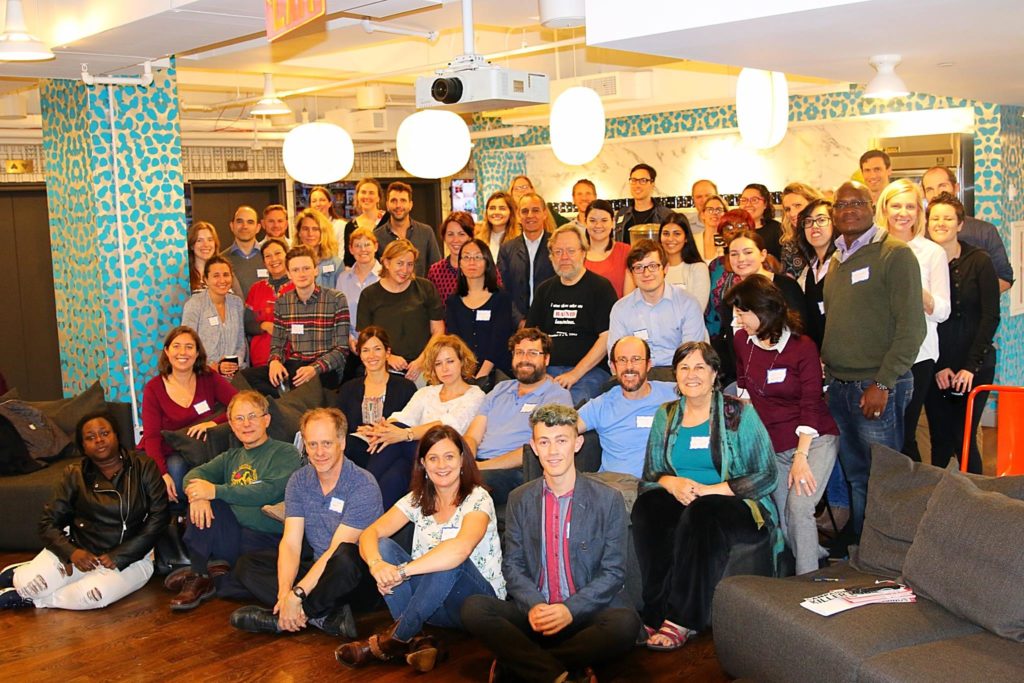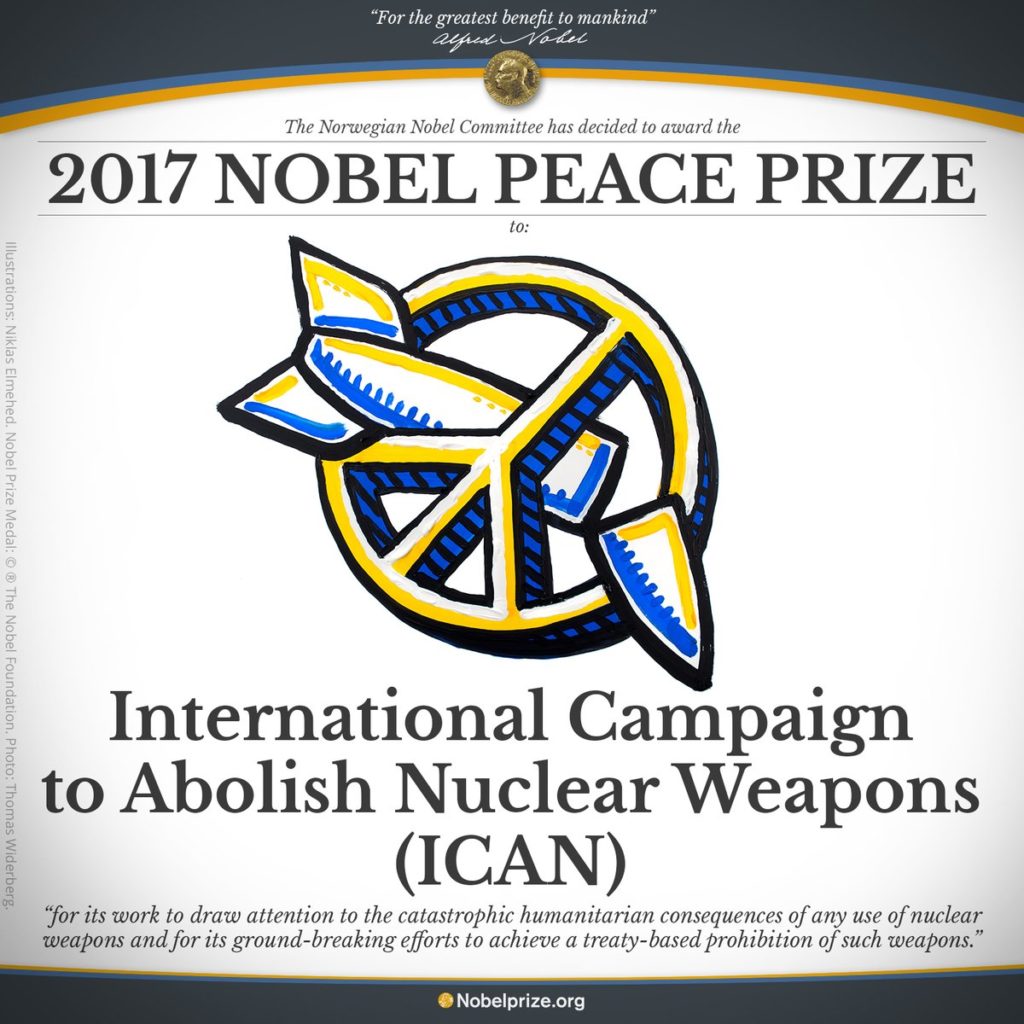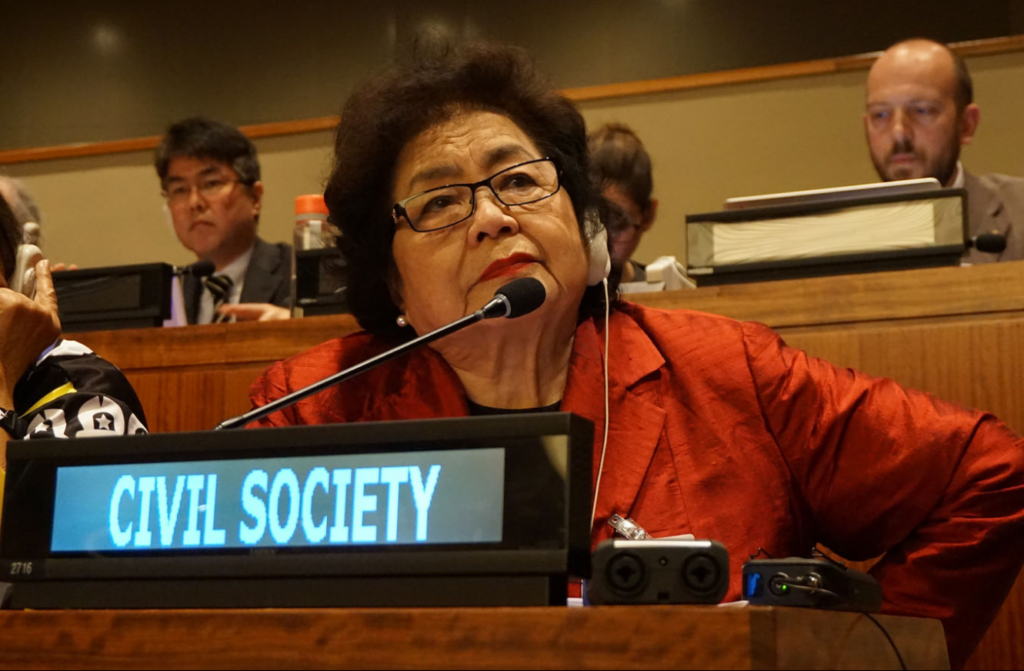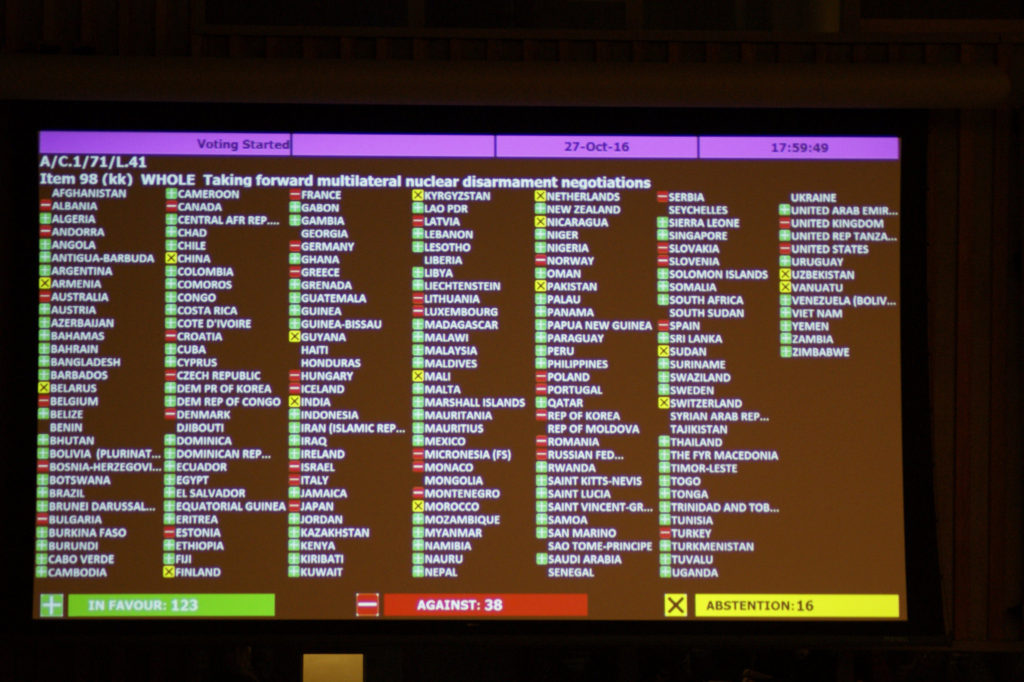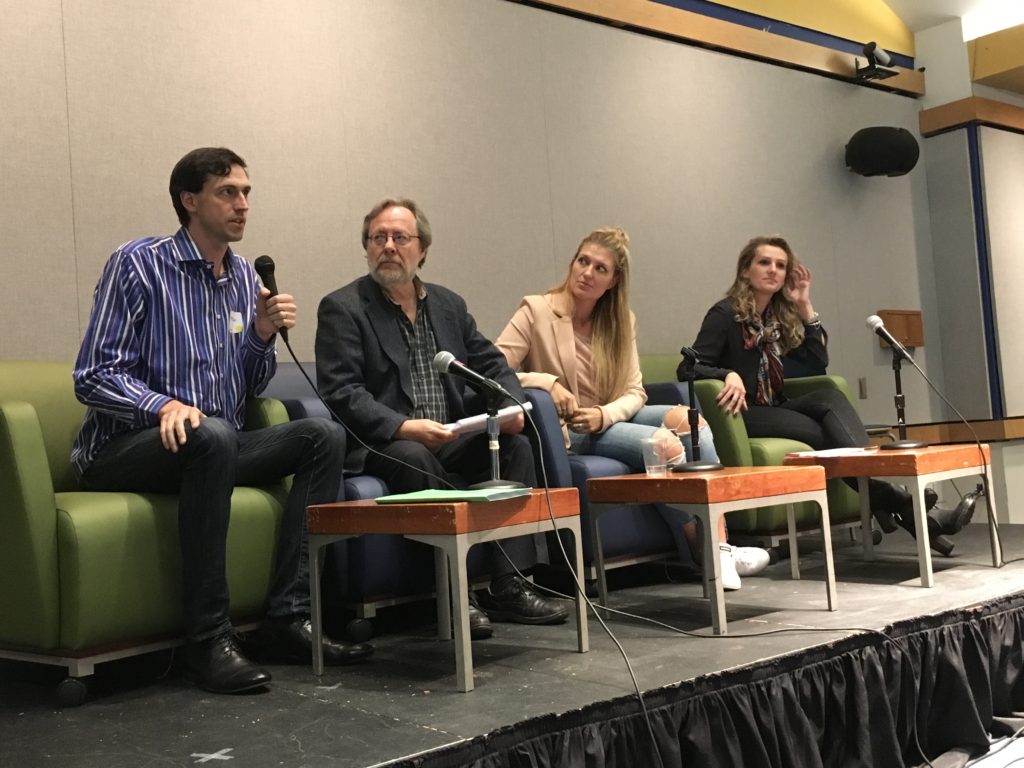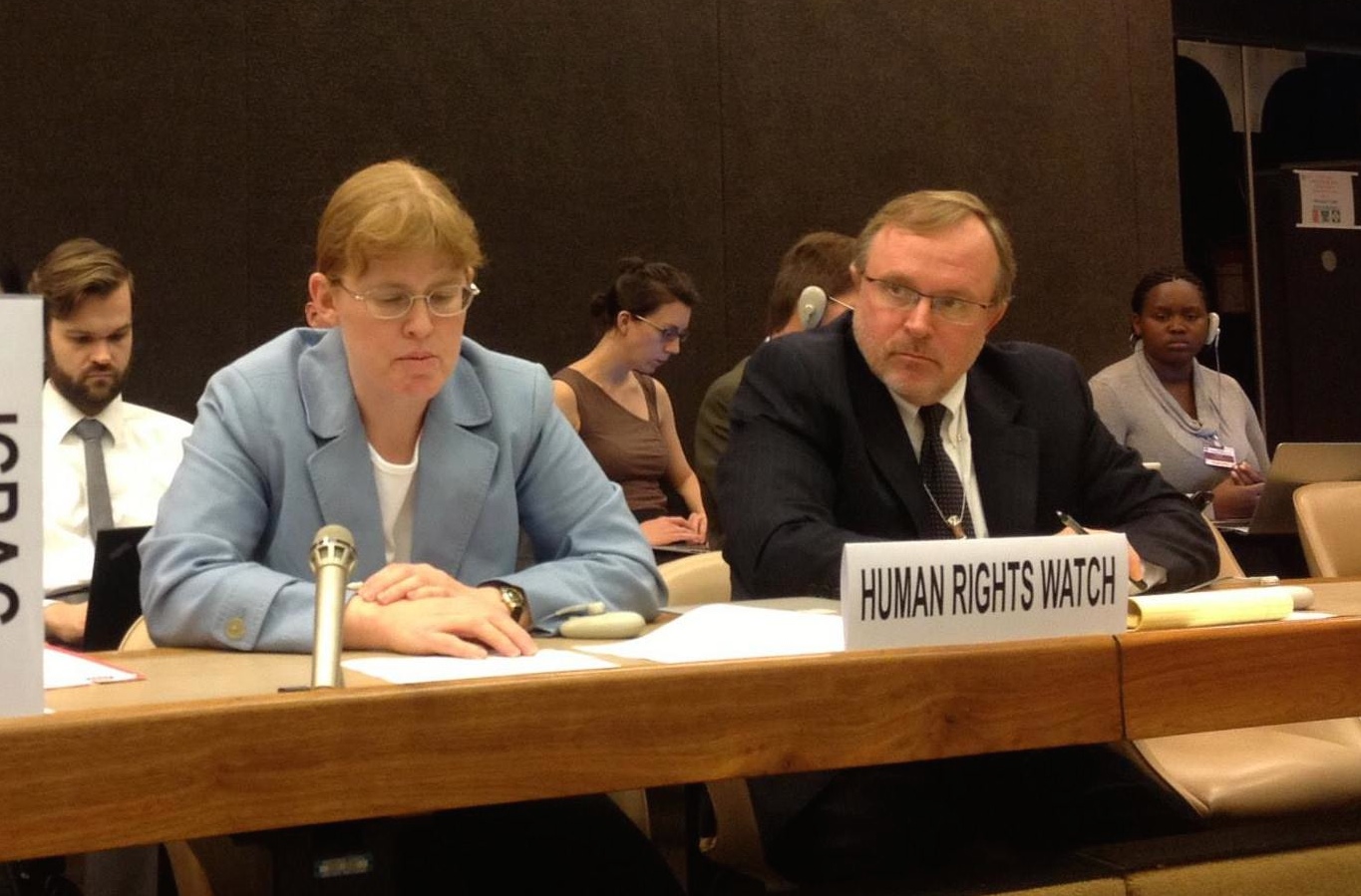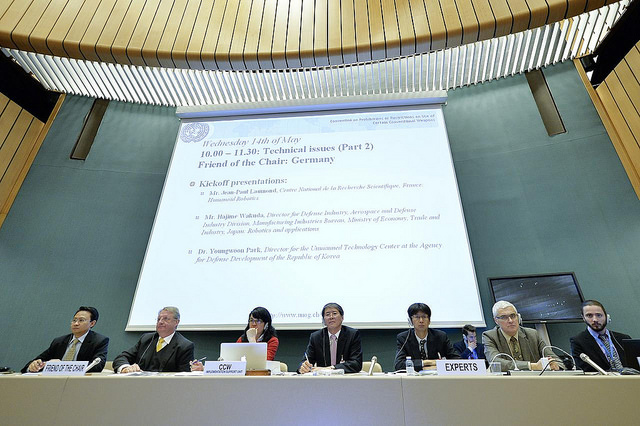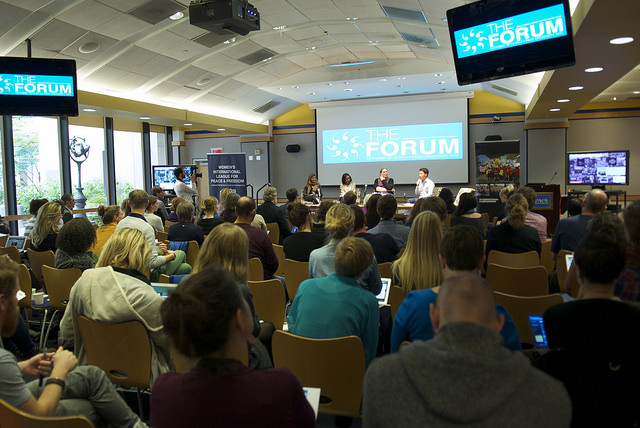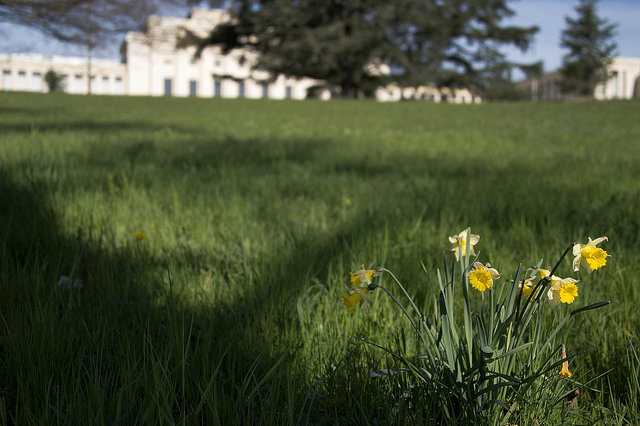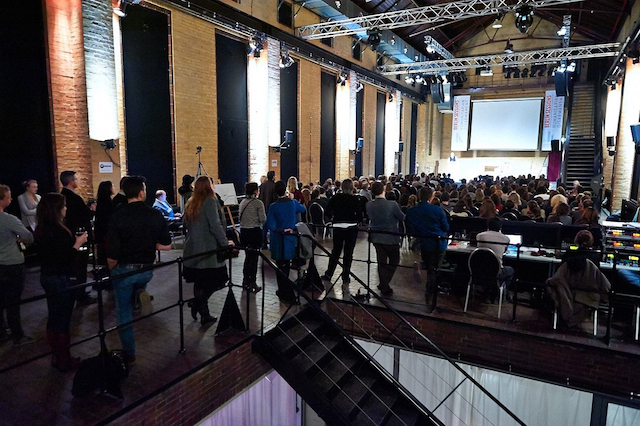Approximately 90 people participated in the 2017 Humanitarian Disarmament Forum in New York City on 14-15 October 2017. This was the sixth year in a row that representatives from non-governmental organizations had convened to learn and strategize collectively on their common work to advance humanitarian disarmament and thereby prevent and alleviate human suffering. Continue reading 2017 Humanitarian Disarmament Forum
|
||||
|
The announcement on 6 October that the 2017 Nobel Prize for Peace has been awarded to the International Campaign to Abolish Nuclear Weapons (ICAN) affirms the humanitarian disarmament as the best way for dealing with weapons of concern. The news comes less than three weeks after the 2017 Treaty on the Prohibition of Nuclear Weapons opened for signature at the United Nations in New York. Continue reading Nobel Affirms Humanitarian Disarmament Almost a quarter century after they were invented and used by the US in Japan with devastating impact, 122 countries have adopted a treaty banning nuclear weapons. An elderly survivor, or hibakusha, of the atomic bomb dropped on Hiroshima, Setsuko Thurlow, was among the first to welcome the Treaty on the Prohibition of Nuclear Weapons after countries adopted it at the United Nations (UN) in New York on 7 July 2017. On 27 October 2016 at the United Nations General Assembly, 123 countries made history when they voted in favor of a First Committee on Disarmament resolution agreeing to negotiate a ban on nuclear weapons next year. The resolution on “taking forward multilateral nuclear disarmament” through negotiations in 2017 is the latest step for an initiative by countries united in their concern at the tremendous humanitarian consequences of any nuclear explosion. According to the resolution, the UN will convene conferences open to all member states in New York on 27-31 March and 15 June-7 July 2017 “to negotiate a legally binding instrument to prohibit nuclear weapons, leading towards their total elimination.” Continue reading Negotiating the nuclear weapons ban in 2017 Five years on, the umbrella term “humanitarian disarmament” is still the appropriate title for the small community of non-governmental organizations (NGOs) and civil society groups working to protect civilians and humanity from the harmful effects of indiscriminate weapons and armed violence. This was one finding of the Humanitarian Disarmament Forum convened by Handicap International, Mines Action Canada, and the International Campaign to Abolish Nuclear Weapons (ICAN) at PACE University in New York’s Lower Manhattan on 15-16 October 2016. Continue reading Humanitarian disarmament in 2016 More than a dozen states have called for international law on incendiary weapons to be reviewed and strengthened in light of civilian casualties, particularly in Syria. Despite these statements and letters, no concrete action has been undertaken yet to address incendiary weapons concerns beyond condemning their use. Continue reading Incendiary weapons condemned again Mainstream media this week caught up on the Internet phenomenon of “all-male” panels or #manpanels when it discovered the “Congrats, you have an all male panel!” Tumblr site by Finnish academic Saara Särmä. Most seemed drawn by the site’s effective use of humour in dishing out a “Hoffsome” Award to recipients, namely the participants in all-male panels at conferences, seminars and other events as well as contributors to publications and “various other things featuring all male experts.” Each submission to the Tumblr site receives a stamp featuring the “thumbs-up” from actor David Hasselhoff of Knight Rider fame, who Särmä described to TIME as “the epitome of a white masculinity.” Humanitarian disarmament activists have been following the site for weeks now as all-male panels persist. Daily side event briefings held at this month’s Review Conference of the Nuclear Non-Proliferation Treaty (NPT) in New York provide ample evidence that all-male panels still thrive in 21st Century disarmament diplomacy. Continue reading Ending All-Male Panels
In short, the world lurched from a very bad situation to an even worse one with increased civilian carnage and an overall inadequate diplomatic response at the United Nations (UN). But this year also saw bright moments of productivity for the community of likeminded governments, UN agencies, the International Committee of the Red Cross (ICRC), and non-governmental organizations (NGOs) pursuing humanitarian disarmament. Continue reading A turmultuous yet productive year Are major powers changing their approach in acting on humanitarian disarmament concerns? It seems unlikely, but one new indicator is seen in the unanimous support given to the first multilateral discussions to be held on the topic of “lethal autonomous weapons systems.” Continue reading Spring meetings on killer robots A busy year lies ahead for the community of activist governments, UN agencies, the International Committee of the Red Cross (ICRC), and non-governmental organizations (NGOs) working to advance humanitarian disarmament. Concerns that the new Year of the Horse will see increasing turmoil look warranted as 2014 opened with armed violence taking lives in Central African Republic, South Sudan, and elsewhere, while the conflict in Syria grinds into its third year. Continue reading Humanitarian disarmament in 2014 |
||||
|
Copyright © 2025 Ministry for Disarmament - All Rights Reserved Powered by WordPress & Atahualpa |
||||

